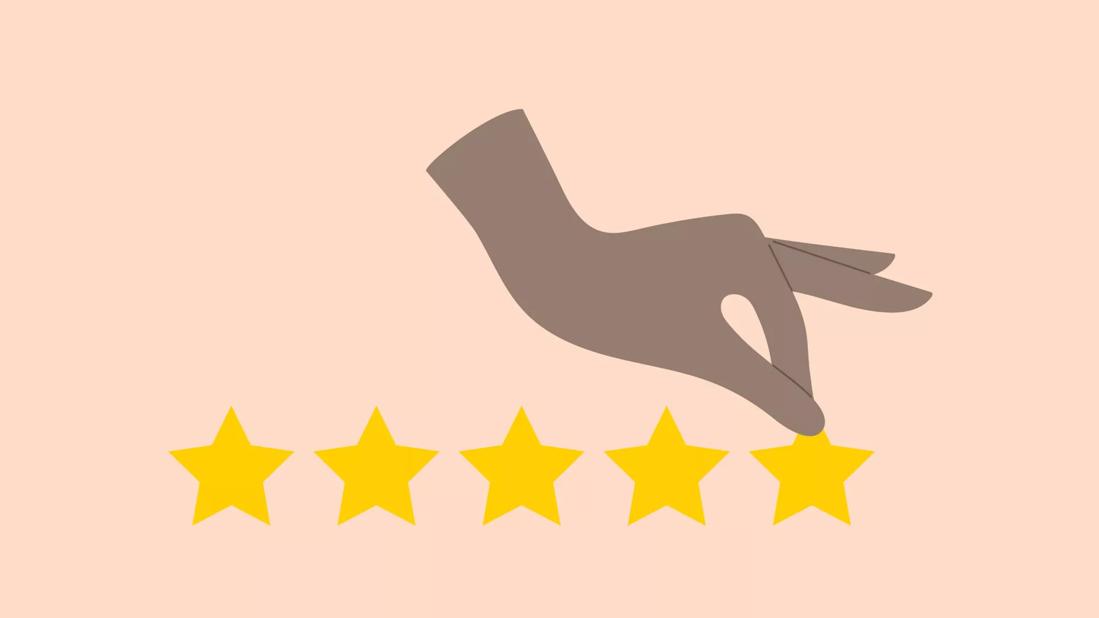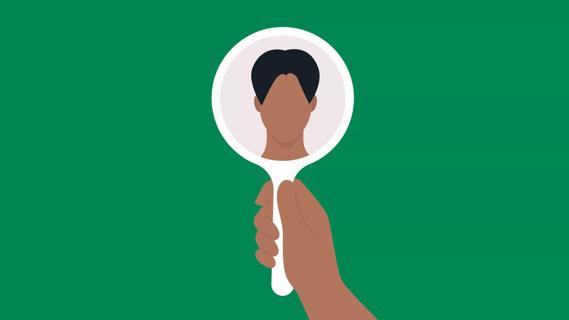Perfectionism isn’t all bad, but here’s how to make sure it hasn’t become toxic

Do you consider yourself a perfectionist? Some of us desire perfection in an endless quest. At its peak, this can feel noble, especially as you see strides in your pursuits. But at its lowest, you may feel profoundly inadequate, leading to feelings of anxiety and poor self-esteem.
Advertisement
Cleveland Clinic is a non-profit academic medical center. Advertising on our site helps support our mission. We do not endorse non-Cleveland Clinic products or services. Policy
So, how do you balance a desire for achievement fueled by perfectionism with a need for self-care and kindness?
Psychologist Susan Albers, PsyD, explains how to recognize signs of perfectionism in yourself and how to not let it cause you harm.
Perfectionism is the pursuit of flawlessness — and it’s a term that can be used to describe a person’s way of life or how they approach tasks and challenges.
While it’s not an official medical diagnosis, it’s a common personality trait that many people can develop. “Being a perfectionist means having very high and exact expectations and standards,” explains Dr. Albers. “It’s working and striving for things to be just right, or just so.”
For many people, perfectionism starts in childhood. Oftentimes, authority figures in our lives, like parents or teachers, can impact the way we view our self-worth. With perfectionism, maybe you were always made to feel that you weren’t doing enough. Or maybe you had parents who pushed you (even with good intentions) to always be the best you could be.
While this can create good self-discipline and ambition, this overwhelming desire for perfection can also cause harm if it leads to you thinking that your self-worth depends on your accomplishments.
Advertisement
Again, there may not be a clear diagnosis for perfectionism, but there are certainly common signs that can help you feel out if you fit in this category.
Here are some traits that are often associated with being a perfectionist:
If you strive for not just 100%, but for 150% success in everything you do, that may be a sign that you’re a perfectionist. Not only that, but you may also put pressure on yourself to meet those high standards.
In other words, your standards are the guiding compass for you a lot of times. If things aren’t in line in the way you expect or plan them to be, it’s likely you feel uncomfortable or feel the need to adjust and tweak things.
Another sign of perfectionism is the desire to have constant structure and organization. This can come in the form of someone caring a lot about cleanliness and tidiness, such as keeping your desk clear or making your bed every morning.
Beyond just being organized, a perfectionist will strive for that structure to always hit their standards.
Having high standards has its benefits. It can help people improve their skills, even though (dare we say it?), no one actually becomes perfect.
“The upside of perfectionism is that it often makes people work very hard, and they’re extremely motivated,” notes Dr. Albers. “They are persistent. They keep working to make things better and better.”
For example, it’s common for musicians, athletes and even doctors to have perfectionist tendencies. These kinds of careers often require a certain amount of self-discipline and commitment, so it’s understandable for people who pursue them to always be striving for improvement.
If you’re constantly hyper-aware of every mistake you’ve ever made — especially more so than others around you — that can be another sign of perfectionism. And again, being aware of mistakes can be a positive. But when it’s too extreme, it can cause stress.
Procrastination is a common consequence of perfectionism. This may sound surprising because you may think of a perfectionist as being always on top of their tasks — but in fact, perfectionism in a lot of cases can lead to putting things off.
This is because you may become fixated on the results of what you’re doing, instead of the process. Once you’re focusing too much on the future end result, it can lead to anxiety and even avoidance of the task at hand.
“With extreme levels of perfectionism, the task can feel really daunting and create a lot of anxiety or stress, which leads to a domino effect of avoidance because there’s a fear of getting started,” explains Dr. Albers. “And then, it feels insurmountable to complete this task.”
Advertisement
For some, the consequences of perfectionism are even more dire. But how do you know if your perfectionism is teetering over the line? The key is to try and get to know yourself and notice how you’re reacting to things.
“One downside is that it often feels like things are never enough, that there’s always dissatisfaction, feeling not good enough, and never really taking satisfaction or joy in what one has accomplished,” says Dr. Albers.
Here are some ways that extreme perfectionism can negatively affect you:
Advertisement
If you’re noticing that perfectionism is feeling more like a weight and less like a motivation, it may be a good idea to find some coping strategies to help you find balance.
If you’re achievement-oriented, it’s a matter of finding that sweet spot where you’re driven (and productive) but not self-tortured.
Advertisement
Your perfectionism may be causing more harm than good if it’s starting to affect your feelings of self-worth, sleep patterns or day-to-day life. For example, if your perfectionism is stopping you from going out and experiencing new things or impacts your mood, this can take a toll on your mental health.
Some people can benefit from a professional’s help. If a perfectionist tendency is significantly impacting your life, a therapist can help you feel accepted for who you are, while recognizing any negative messages you’re telling yourself. In the end, you can learn to be kinder to yourself.

Sign up for our Health Essentials emails for expert guidance on nutrition, fitness, sleep, skin care and more.
Learn more about our editorial process.
Advertisement

BPD is associated with more frequent mood swings and difficult relationships, while bipolar disorder has more persistent, long-lasting depressive and manic episodes

Psychopathy informs how you develop emotional and psychological connections, while sociopathy is rooted in breaking social rules

Sociopathy is a form of ASPD, characterized by a lack of empathy, disregard for others and persistent breaking of rules

Create a support system, a paper trail, emotional boundaries and a strong sense of self

Narcissistic personality disorder is a mental health condition, not an insult

Being the center of attention doesn’t mean you have to exile your guest stars

People-pleasing, perfectionism and putting others first are all signs of this harmful behavior

People with this syndrome exhibit social behaviors and traits considered immature

Even small moments of time outdoors can help reduce stress, boost mood and restore a sense of calm

A correct prescription helps your eyes see clearly — but as natural changes occur, you may need stronger or different eyeglasses

Both are medical emergencies, but they are very distinct events with different causes